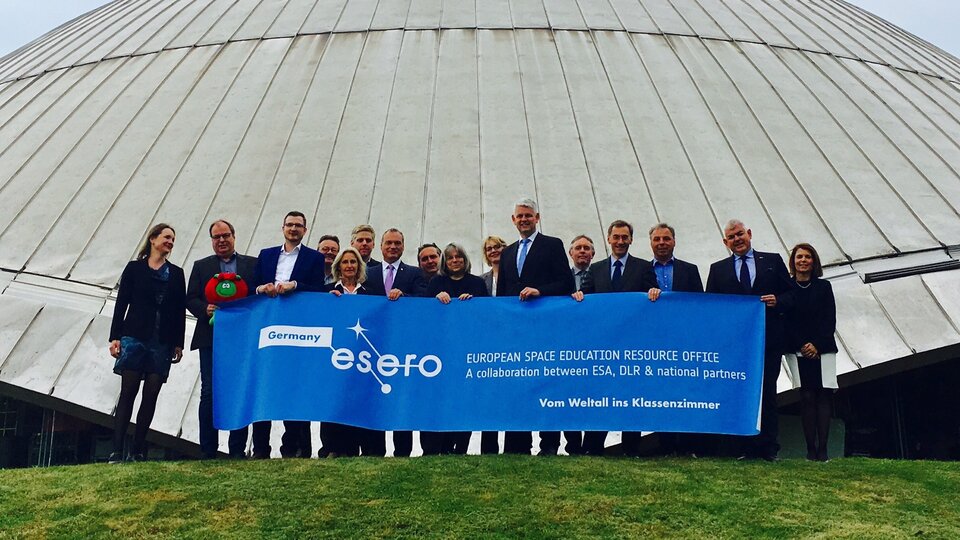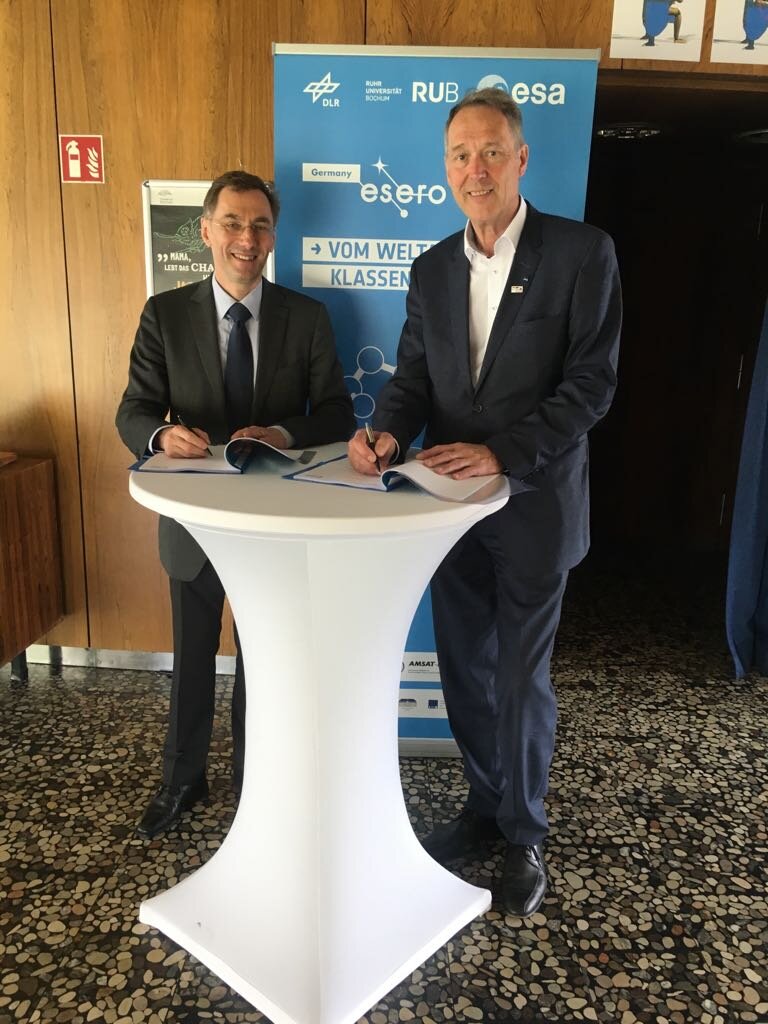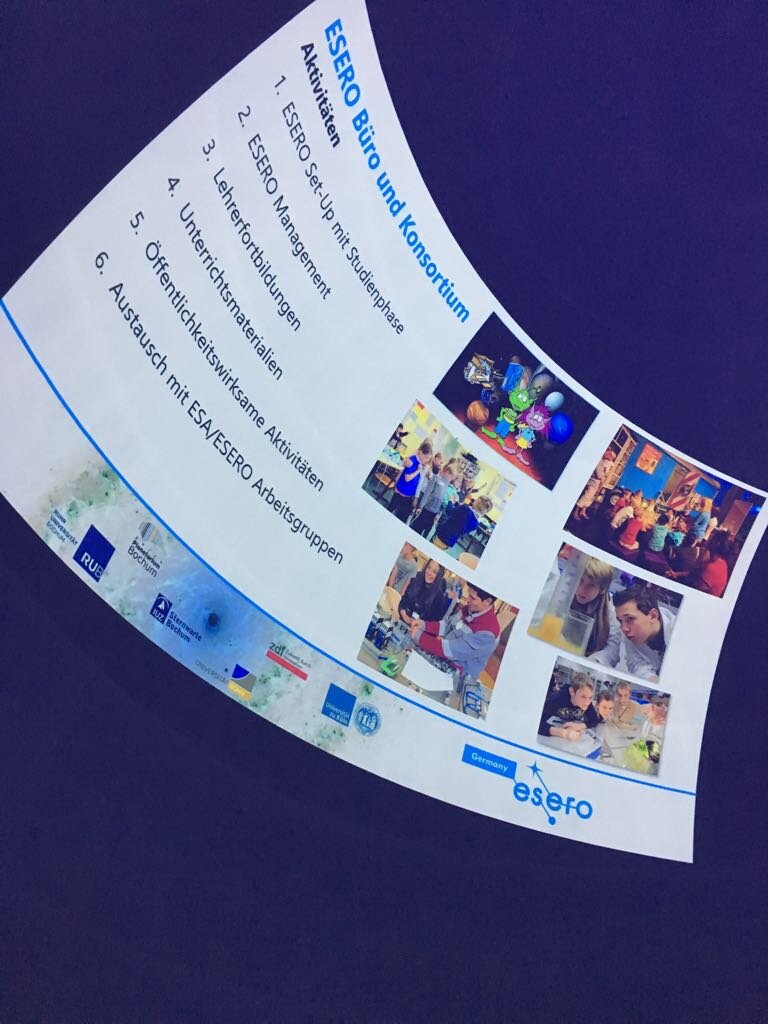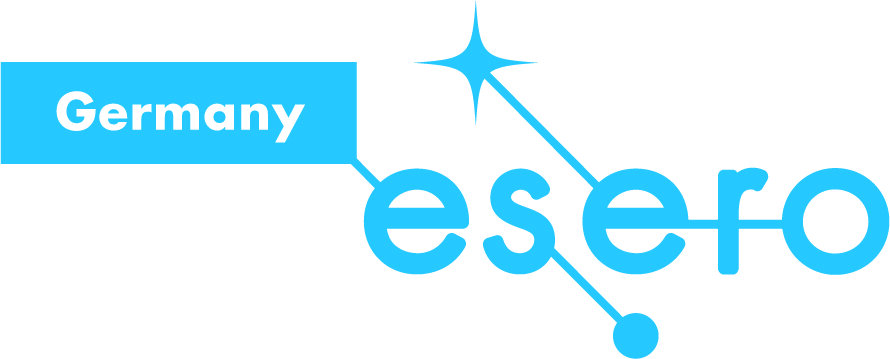Space lands in the classroom - ESERO Germany takes off!
The new ESERO Germany office was formally inaugurated yesterday, 16 May 2018, at the Bochum Planetarium.
A collaborative project between ESA and DLR, ESERO Germany is a project that will use the theme of space to support national school education in the field of science and technology, while complementing the existing space-related educational offer of DLR in Germany.

Hosted by the Geomatics Research Group at the Ruhr-University of Bochum (RUB), ESERO Germany joins ESA’s ESERO network, presently covering 14 other ESA Member States.
Germany is one of the leading countries in the fields of science, research and technology. Academic and vocational education must meet the needs of the demand for qualified specialists and professionals. It is therefore increasingly important to educate students, starting from an early age, to nourish their interest and enhance their competences in Science, Technology, Engineering and Mathematics (STEM), and stimulate them to pursue careers in these domains, space in particular.
Since its intake in 2006, the ESERO network has been supporting national school education systems Europe-wide, providing teachers with innovative teaching methodologies, as well as access to exciting school projects and classroom resources that use space as a rich, multidisciplinary and inspiring context for STEM education. In particular, the scientific and inquiry-based methodology used across the project, and the continuous links to advanced space research, aims at bridging the gap between the STEM theory taught at school and the real practice of science.

“We need to equip future citizens with the scientific and technical knowledge and skills which Europe needs in order to remain competitive. At the same time, ESA is aware that in order to make a real difference at national level in the field of STEM education, we need to join forces with the national education institutions and communities. ESERO is a collaborative project that successfully responds to the specific needs of each country, and that brings tangible results,” said Kai-Uwe Schrogl, ESA Chief Strategy Officer.
"Germany is a country low on raw materials. We rely on know-how and technological innovation. To cover our need for young scientists and engineers, we have to engage boys and especially girls in STEM subjects. Space exploration has an extremely high potential to inspire and motivate and I am very pleased to open an ESERO office in Germany.", says Dr. Walther Pelzer, Executive Board Member for the DLR Space Administration.
ESERO Germany is implemented through a Consortium of partners, led by RUB, that was selected by DLR and ESA through a national call for interest issued in 2017. The consortium’s long-lasting and strong experience in STEM education, its solid scientific, technical and space-related know-how, and its vast network of educational institutions and schools spread throughout Germany will ensure a nationwide coverage and large scale reach across the country.
Besides the Ruhr-University Bochum, the ESERO Germany Consortium is composed of:
- the Remote Sensing Research Group of University of Bonn (UoB);
- the Zeiss Planetarium Bochum;
- Bochum Observatory;
- the Hausdorff Center for Mathematics (UoB);
- the Physics Institute (UoB);
- the Argelander-Institute of Astronomy (UoB);
- the Institute of Physics Education at Cologne University;
- and the network zdi.NRW – Zukunft durch Innovation (‘Shaping the future through innovation’), which unites 3.800 partners from business, science, education, politics and social groups with the aim of attracting young people to STEM.

About the ESERO Project
ESERO (European Space Education Resource Office) is ESA’s flagship educational project in support of primary and secondary school education. Aiming to enhance scientific and technological literacy, skills, and competences of school pupils, starting from an early age, ESA’s ambition is to encourage the young generations to pursue STEM studies and careers. The ESERO project also contributes to raise awareness in pupils about the importance of space activities for modern society and about the large range of career prospects in the space domain.
Through offices established nationally, offering teacher trainings, and classroom projects and resources tailored to the national languages and school curricula, ESERO trains teachers so that they can bring space to the classroom and make their lessons more inspiring and effective. ESERO also offers a great variety of information and privileged access to state-of-the-art space facilities, real scientific data, know-how, expertise, and role models. ESEROs are staffed by national education experts able to work in strong synergy and partnership with their national education authorities, stakeholders and networks, as well as national space institutions – an approach that has already proven to be effective and successful in several European countries.

The European network of ESERO offices is managed and coordinated by ESA and now covers the following 15 ESA Member States: Austria, Belgium, Czech Republic, Denmark, Finland, Germany, Ireland, the Netherlands, Norway, Poland, Portugal, Romania, Spain, Sweden, and the UK.
Luxemburg and Italy will soon join the network, while preparations are also ongoing in France, Hungary and Greece.




